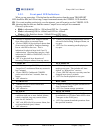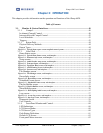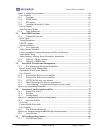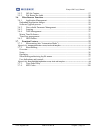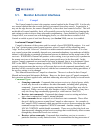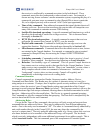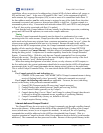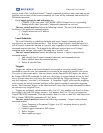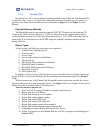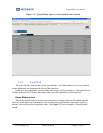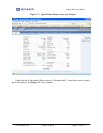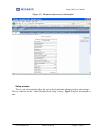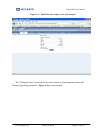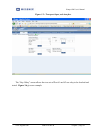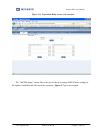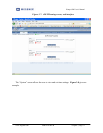
iPump 6420 User’s Manual
www.wegener.com 800070-01 Rev B Chapter 3, Page 44
3.1.2. Return Path
Return Path is a set of return-channel reporting methods which allow the field iPump6420s,
as network “edge” devices, to report back status information to the uplink control system. Its
position in the entire Store/Forward system is illustrated in Figure 1-1 in Chapter 1 of this
Manual.
Physical Delivery Methods
The Return Path reports are returned using the POST HTTP method to the listening CGI
scripts in the CSM software subsystem. (CSM is a subsystem of the Compel uplink control
system, installed exclusively for the Store/Forward missions.). The HTTP connections may be
made using IP over the internet or by IP/PPP using the (optional) telephone modem and an
analog telco line.
Report Types
At this writing, the following report types are supported:
1. General Status (Report type #0)
2. Asset Inventory
3. As-run Logs
4. As-run Logs (without local deletion)
5. Operation Logs
6. Operational Logs (without local deletion)
7. ShowShift Show definitions
8. ShowShift Shifted (episode definitions)
9. ShowShift event file
10. OAR capture files
In addition to these reports, which are directly user-accessable, there is a higher report type
for the NACKs used in Asset Healing, the file modeling and management utility (see Section
3.3.6).
With the reports sent in by Return Path, the uplink control system may provide the system
operator with access to several processed reports. See Figure 3-1 for an example of the receiver
Status web screen, available in the CSM subsystem.
The relevant user controls are:
1. WAN or LAN IP settngs (IP address, netmask, and Gateway)
2. Return Path server IP address
3. Return Path backup server IP address
4. Return Path modem phone number
5. Return Path modem PPP login
6. Return Path modem PPP password
7. Return Path modem remote phone number
8. Return Path modem backup remote phone number
9. Commands to request Return Path reports (see above)
10. Action Tag requests to send Return Path file NACKs to support Asset Healing (see
Section 3.3.6)



